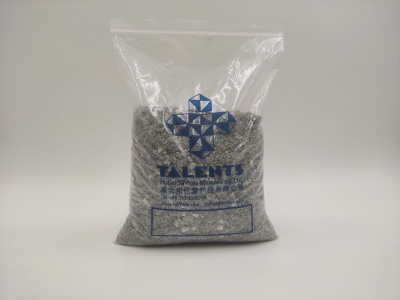barium salt
Product Features:
Drilling grade barite are produced from natural barium sulfate ores.Commonly used as a weighting agent for all types of drilling fluids in oiland gas exploitation.
Our drilling barite manufactured to meet or exceed all APl 13 Arequirements.
This grade also can be used in the applications which high purity but lowwhiteness requirements.
Application Areas:
◆Oil drilling ◆Friction materials ◆Rubber ◆Radiation wall
Index | TLZ-DB01 | TLZ-DB02 |
Appearance | Granule | Granule |
Special gravity ≥ | 4.1 g/cm³ | 4.2 g/cm³ |
BaSO₄+ SrSO₄Content | 85% | 90% |
Hg ppm ≤ | 1 ppm | 1 ppm |
Cd ppm ≤ | 3 ppm | 3 ppm |
As ppm ≤ | 40 ppm | 40 ppm |
Pb ppm ≤ | 1000 ppm | 1000 ppm |
Si0₂Content | - | 3% max |
Fe₂O₃Content | - | 3% max |
Carbonates | 5000ppm max | 5000 ppm max |
Water Soluble Alkaline Earth Metals As Calcium ≤ | 250 mg/kg | 250 mg/kg |
Miosture | 2% | 2% |
Granule Size | 0-100 mm | 0-100 mm |
Barium salt is a broad term used to describe a class of chemical compounds derived from barium, a soft alkaline earth metal. These salts play a critical role in a variety of industries, from manufacturing to medical imaging. If you’ve heard the term but aren’t sure how it applies in real-world settings, this comprehensive guide is for you.
Whether you’re in chemical manufacturing, ceramic production, or radiology, understanding the applications and properties of barium salt could make a significant impact on your operations.
🧪 What Exactly is Barium Salt?
Barium salts are ionic compounds in which barium (Ba²⁺) is bonded to a negatively charged ion (anion). Some of the most commonly used barium salts include:
Barium chloride (BaCl₂)
Barium sulfate (BaSO₄)
Barium carbonate (BaCO₃)
Barium nitrate (Ba(NO₃)₂)
Each type of barium salt possesses its own set of properties, making it suitable for different industrial, agricultural, or medical uses.
🏭 Major Industrial Applications of Barium Salt
1. Glass & Ceramics Manufacturing
Barium carbonate is widely used in the ceramics industry to improve the gloss and durability of tiles, enamel, and bricks. It prevents scumming in clay bodies and enhances the finish.
💬 "We switched to barium carbonate in our tile production, and the improvement in glaze smoothness was instantly noticeable!"
— Elena R., Ceramics Manufacturer, Spain
2. Radiology & Medical Imaging
Barium sulfate is commonly used in X-ray and CT scans as a contrast agent. Due to its high atomic number, it blocks X-rays, allowing clear imaging of the digestive tract.
💬 "As a radiologist, barium sulfate is my go-to for safe and effective GI tract imaging. Patients tolerate it well, and images are sharp."
— Dr. Matthew K., Radiologist, USA
3. Fireworks & Pyrotechnics
Barium nitrate and barium chlorate are used to create green flames in fireworks due to their specific combustion color properties.
4. Oil & Gas Drilling
Barium sulfate, in its natural form as barite, is used in drilling muds to increase the density of the fluid, balancing pressure in deep drilling.
5. Paints & Pigments
Barium salts are used in pigments for producing permanent, corrosion-resistant coatings, especially in outdoor or marine-grade paints.
🔬 Properties That Make Barium Salt Unique
High Density
Especially in barium sulfate, which contributes to its effectiveness in medical imaging and drilling applications.Chemical Stability
Most barium salts are thermally and chemically stable, making them ideal for high-temperature industrial processes.Color Enhancement
Certain barium salts can affect color and opacity in glasses, ceramics, and pyrotechnics.Toxicity & Handling
While barium salts are invaluable, it’s critical to note that some forms (e.g., barium chloride) are toxic if ingested or inhaled. Appropriate handling and storage protocols are a must.
📦 Commercial Forms and Packaging
Barium salt is typically available in the following forms:
Powdered (Technical Grade or Food Grade)
Granular
Crystalline
Suspension (for medical applications)
Packaging options include:
25kg/50kg PP woven bags
1-ton jumbo bags
Custom vacuum-sealed or double-layer bags (for high-purity or moisture-sensitive orders)
🧠 Frequently Asked Questions
❓ Is barium salt safe to use?
Barium sulfate, used in medical settings, is non-toxic due to its insolubility. However, soluble barium salts, like barium chloride, must be handled with extreme care.
❓ Where is barium salt most commonly used?
Industries like ceramics, oil drilling, medical diagnostics, and fireworks rely heavily on various types of barium salts.
❓ Can I import/export barium salt internationally?
Yes, but regulations may vary. You must comply with chemical transport guidelines and, in many regions, provide an MSDS (Material Safety Data Sheet).
🌍 Market Trends: Why Demand for Barium Salt Is Growing
With growing global emphasis on energy exploration, advanced diagnostics, and infrastructure development, the demand for barium salt is rising steadily. Environmental alternatives in ceramics and safe contrast agents in healthcare continue to drive innovation in barium-based compounds.
💬 "We’ve seen a 25% rise in barium carbonate demand in the past two years—primarily driven by renewable ceramic energy systems."
— Chen Wu, Chemical Distribution Manager, China
📌 Conclusion: Why Choose High-Quality Barium Salt?
Whether you're improving the brightness of your ceramic glaze, enhancing medical diagnostics, or ensuring the safety of a drilling operation, barium salt offers a unique blend of functionality, efficiency, and industrial value.
If you're looking for reliable barium salt suppliers, ensure they offer:
Purity certifications
Consistent particle size
Safe, regulated packaging
Technical support and documentation





